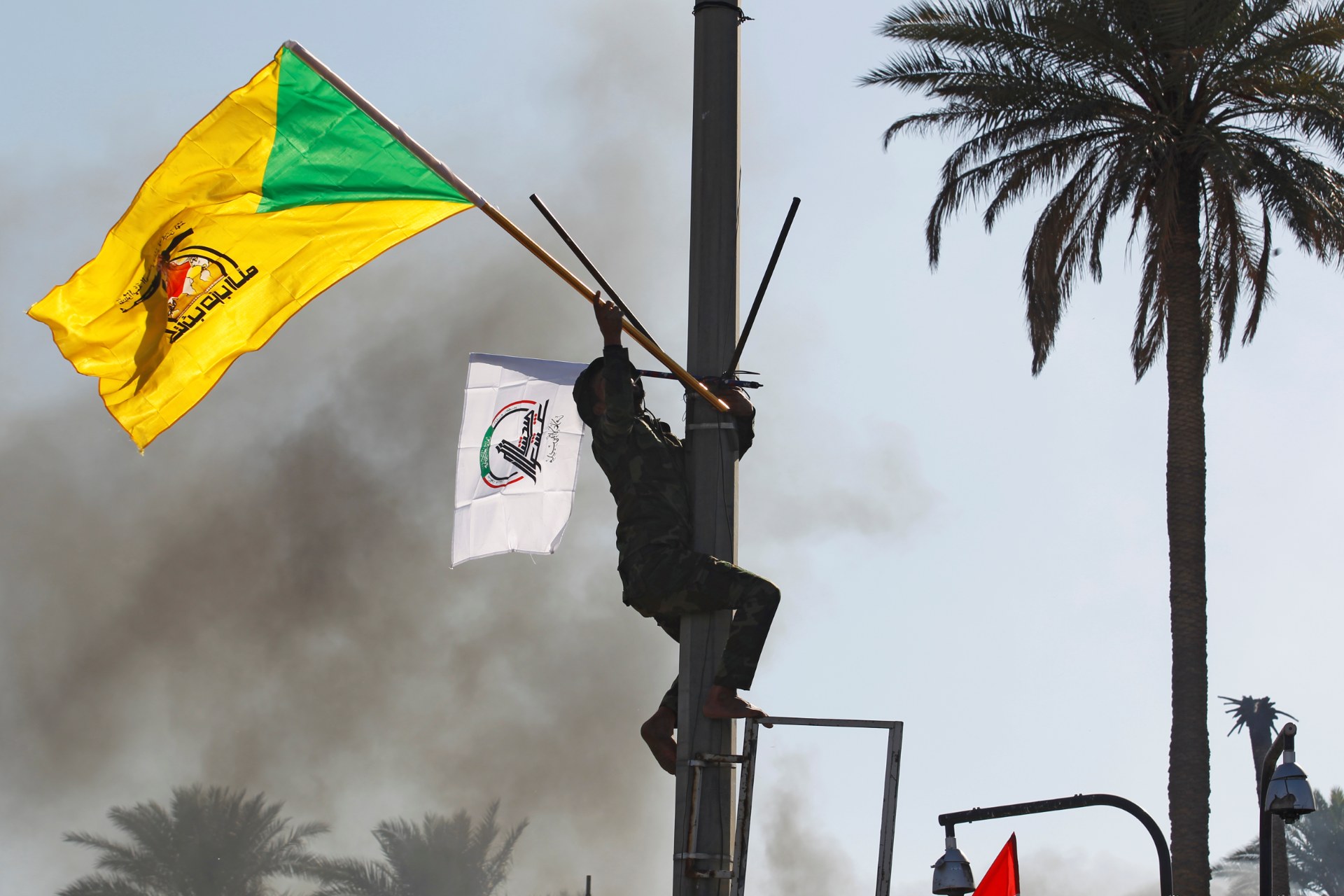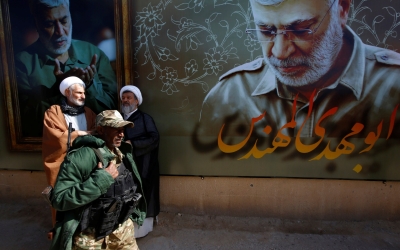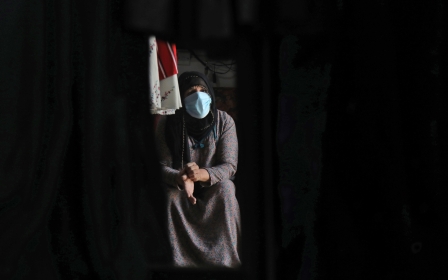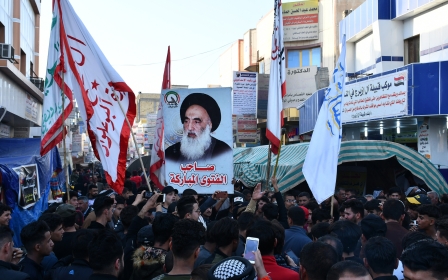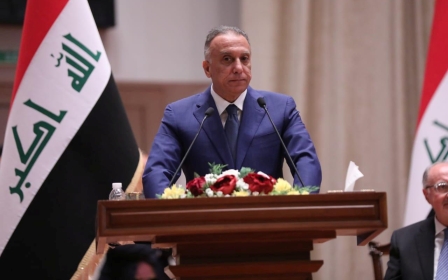The Baghdad raid that put Kadhimi and Kataeb Hezbollah on a collision course
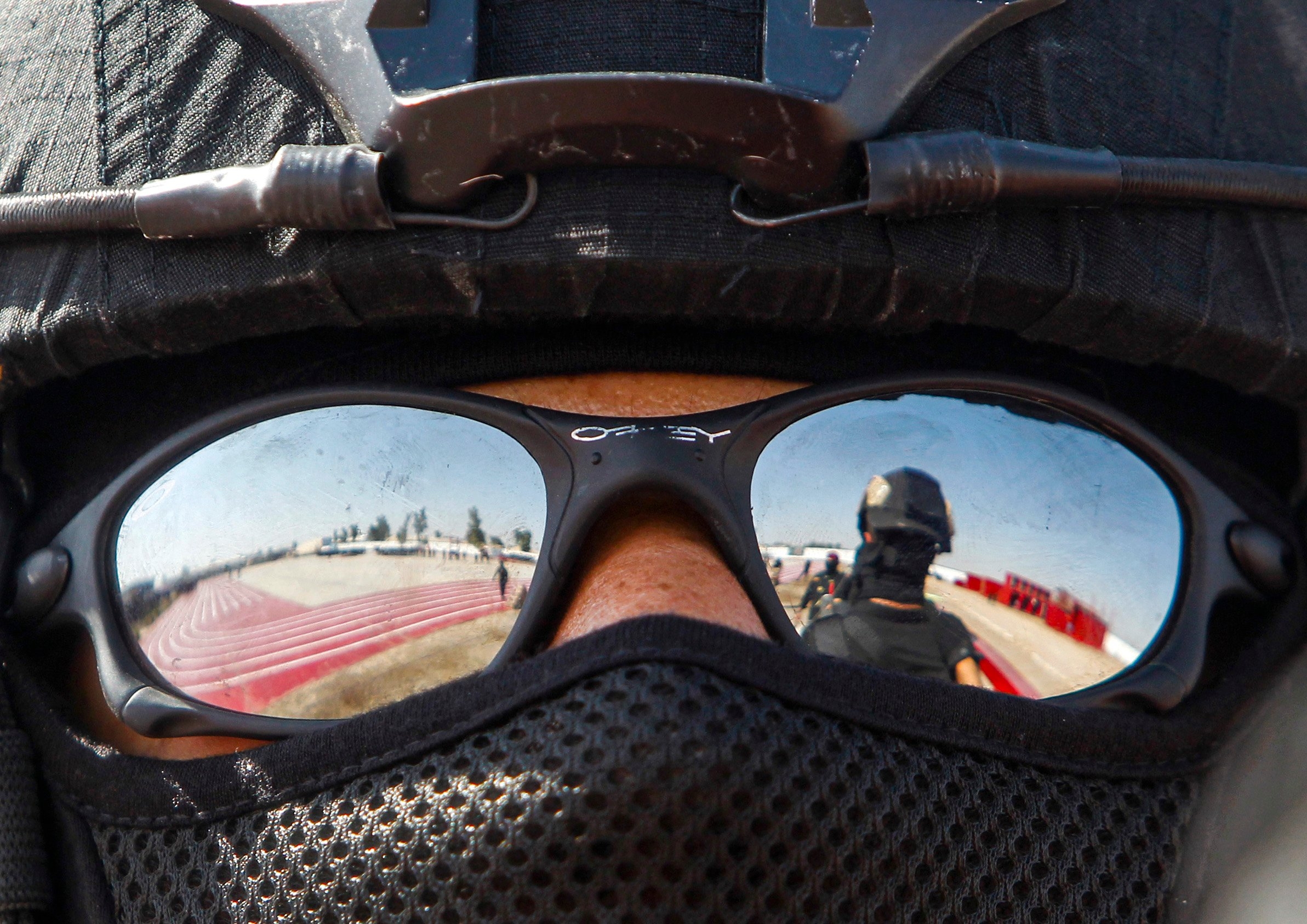
The commander of the 17th Iraqi Army Division in southern Baghdad had received “secret and immediate” cables like this before.
Iraq’s crack Counter-Terrorism Squad (CTS) would be conducting an “emergency and special” operation on Thursday in the Sunni majority district of Dora to arrest a wanted person. Usually this meant a raid on Islamic State (IS) group suspects and the like.
Instead, the commander was shocked to learn, the target was a headquarters of the most powerful and ferocious Iran-backed Shia armed faction, Kataeb Hezbollah.
Kataeb Hezbollah’s unassuming Dora headquarters is located in a wooded rural area of the al-Bouaitha suburbs, once a stronghold of the 2003-2007 Sunni insurgency.
It is composed of two simple adjacent houses, each consisting of one floor. Both are located on the bank of the Tigris River, about 75 metres away from the nearest building.
New MEE newsletter: Jerusalem Dispatch
Sign up to get the latest insights and analysis on Israel-Palestine, alongside Turkey Unpacked and other MEE newsletters
The unregistered base, which looks abandoned and uninhabited from outside, is surrounded by an iron sheet fence more than two metres high.
Although the cable, which was seen by Middle East Eye, said the mission would start at 5am, the assigned force, which consisted of 120 combatants and 20 military Humvees, pulled up in front of the buildings at 4.30am after rolling down a series of dirt roads.
The mission lasted no more than 17 minutes. It ended without any resistance and resulted in the arrest of 13 Kataeb Hezbollah fighters. Twenty-three Katyusha rockets, three Russian-made Dragonov sniper rifles and 10 Russian-made AKM assault rifles were seized, in addition to one missile launcher, a CTS officer involved in the raid told MEE.
"They were asleep and did not notice our arrival, just as their sources did not know our exact destination and did not have enough time to alert them,” the officer said.
The Iraqi Joint Operations Command said in a statement on Friday that the operation was based on "accurate intelligence" on people who “had previously targeted the Green Zone and Baghdad International Airport with indirect fire several times”.
According to the intelligence, the suspects were hatching fresh plans to carry out more rocket strikes against government targets in the Green Zone, Baghdad’s heavily fortified governmental and diplomatic district.
Enflaming tensions
Immediately, the raid enflamed tensions between Iranian-backed Shia factions and the government of Prime Minister Mustafa al-Kadhimi.
The operation, described as pre-emptive, has been labelled by the government as an attempt to "preserve the prestige of the state" by stopping the near-daily missile attacks that have plagued the US embassy and military bases hosting American troops for months.
Observers, however, wonder if it will in fact have the opposite effect, and raised questions about Kadhimi’s seriousness about tackling his country’s semi-official armed factions. Were violent reactions to erupt, it is not clear that Kadhimi’s government could weather such a storm, as it grapples with a financial crisis and escalating coronavirus cases.
'The timing is fatal, and Kadhimi does not have many options, especially since Kataeb no longer listens to the orders of Iran and has started working on its own'
- Prominent Shia politician
"Kadhimi has been facing great pressure from several parties, including the US and Kataeb Hezbollah, as both sides push to maintain their influence,” a prominent Shia politician close to Kadhimi told MEE, speaking on condition of anonymity.
A fresh round of talks next month between Iraq and the US reviewing the nature of the two countries’ security and military relationship, as well as the sanctions waivers Washington allows Baghdad in its dealings with Iran, mean the stakes are high.
According to the politician, “Kataeb has increased the rate of their missile attacks on American sites in Iraq recently to embarrass Kadhimi, while the Iraqi government is obliged to protect these sites before the second round of the US-Iraqi dialogue comes in July."
He added that: “Kadhimi desperately needs the Americans to help him out of the stifling financial crisis he faces with the least losses, and convince the international community to back Iraq after the previous government lost its support... So the timing is fatal, and Kadhimi does not have many options, especially since Kataeb no longer listens to the orders of Iran and has started working on its own.”
Moments from bloodshed
The evening after the raid, Hadi al-Amiri, commander of the Badr Organisation, the biggest Iran-backed Shia armed faction in Iraq, called for an emergency meeting at his home.
Present were the leaders of Kataeb Hezbollah, former prime minister Nouri al-Maliki, and Faleh al-Fayyad, head of the Popular Mobilisation Authority (PMA) paramilitary umbrella group.
They were gathered, a PMA commander familiar with the details of the meeting told MEE, "to discuss the latest developments and try to contain the crisis".
The Kataeb Hezbollah commanders asked Fayyad to convey a message to Kadhimi that “if the detainees were not released immediately, they would embarrass him regionally”, the source said.
Kadhimi’s response came before the meeting had even broken up, and it was as direct as it was swift: he refused.
Immediately, dozens of government vehicles loaded with fighters and weapons led by Abu Fadak, a Kataeb Hezbollah commander who is currently chief of the PMA’s forces, left a base in the Green Zone and fanned out around a nearby CTS station.
Another force of similar size headed from elsewhere in the city towards the Green Zone, but quick closure of the district’s entrances prevented them from entering. Instead, the fighters positioned themselves at two of the area’s gates.
"The aim was to storm the CTS headquarters and take a number of its fighters as hostages until the detainees are released,” the commander said. But the counter-raid never took place.
Instead, Amiri, Maliki and Fayyad managed to reach a settlement with Kadhimi, in which the detainees would be handed to the PMA’s security directorate, with the decision to release them or not left to the judiciary.
The two forces did not receive orders to withdraw until 5am on Friday, when the procedures to hand over all detainees to the PMA security directorate were completed.
On Monday evening, a judge decided to release 10 of the detainees "due to insufficient evidence" and the continued imprisonment of three others, whose fingerprint matched those found in investigations into previous rocket attacks on the Green Zone, at least three PMA commanders told MEE.
Two more have now been released, according to government spokesman Ahmed Al-Mulla Talal, leaving only the Kataeb Hezbollah commander the CTS had targeted in the first place.
No guarantees
Although most of Iraq’s Shia political forces and armed factions issued strongly worded condemnations in response to the raid, and have devoted all of their media resources to attacking Kadhimi and his government over the past few days, their reactions have so far been confined to the war of words.
Security officials and observers believe the lack of violence could indicate that Kataeb Hezbollah is somewhat more isolated than it has been before.
A leadership vacuum across the Iran-backed armed factions and within Kataeb Hezbollah has been apparent since the US killing of the faction’s leader Abu Mahdi al-Muhandis and top Iranian General Qassem Soleimani in January.
'The operation was an ear pinch for Kataeb, to restrain them and break their prestige'
- Paramilitary commander
Meanwhile, Iran’s recent tendency to seek ways to calm relations with Washington and explicit instructions to stop attacks on US interests in Iraq has left Kataeb Hezbollah a relative outlier with its continued rocket launches.
There are no guarantees that Kadhimi will succeed in his endeavour to curb their activities, however, or that the other armed and political factions will remain content to watch things play out.
"The operation was an ear pinch for Kataeb, to restrain them and break their prestige,” a prominent paramilitary commander told MEE.
“It is also an attempt to feel the pulse of the rest of the [pro-Iran armed] factions to find out their reactions and to what extent Kadhimi can push them back before they violently respond,” he added.
“Kadhimi has no choice but to complete what he started, but he must be smart and avoid any direct confrontation, otherwise we all will become prisoners of endless chaos.”
Middle East Eye delivers independent and unrivalled coverage and analysis of the Middle East, North Africa and beyond. To learn more about republishing this content and the associated fees, please fill out this form. More about MEE can be found here.


